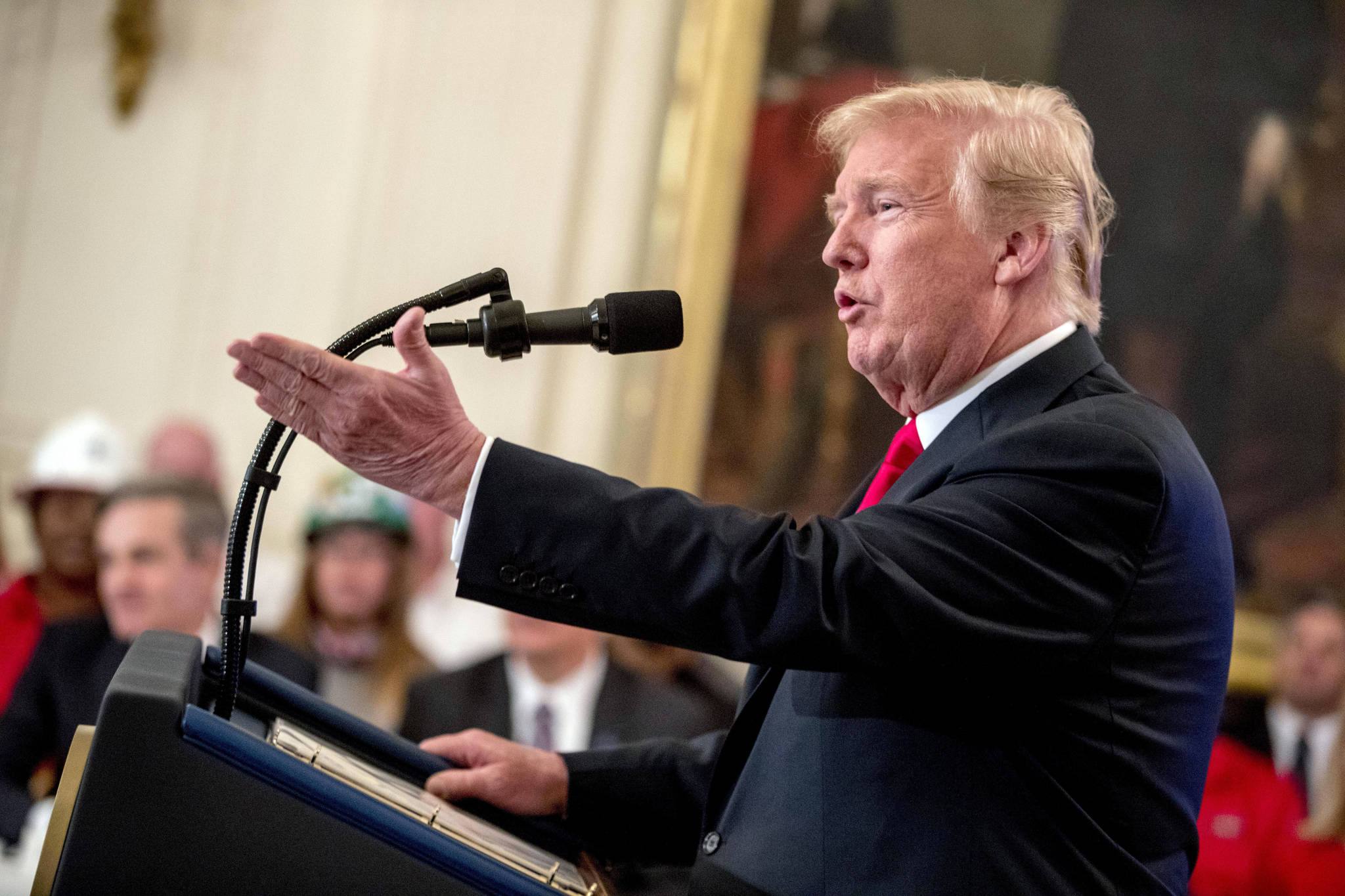When President Trump speaks about the economy, and members of Congress respond, it’s newsworthy. But even when accurately quoted, their words usually constitute opinion, spin or speculation rather than facts. That’s why the news and analysis which attempts to establish who is right and wrong isn’t news at all.
The tariff debate offers a perfect example.
Fox News reported on Trump’s “Tariffs are the greatest!” tweet by putting it in the context of “hardball trade talks” with European Commission President Jean-Claude Juncker. Readers got a brief recap of the tariffs Trump has imposed and the retaliatory response by the EU. The story ended by describing Harley-Davidson’s plan to avoid tariffs by moving “production of European-sold motorcycles abroad.”
A Washington Post story looked at Trump’s tweet solely from the Harley-Davidson perspective. The story included a snippet of how 18 months ago the president praised the company for “building things in America.”
If that kind of negative focus reveals a bias, the Post’s columnist Marc A. Thiessen rebutted it by arguing Trump is “using tariffs as a tool to advance a radical free-trade agenda.” He claimed the joint announcement by Trump and Juncker of a “cease-fire in their trade war” is proof the president’s strategy is working. But “Trump is a long way from a final deal” he concluded. “And in trade, nothing is agreed to until everything is agreed to.”
Like the post, the Anchorage Daily News ran a news story slanting away from the president’s position. They reported that Sen. Lisa Murkowski opposes the $12 billion Trump wants to give farmers hurt by the retaliatory tariffs. “When you lose your farm” she said, “you lose your farm.” And in an obvious jab at Trump’s tweet she added “there’s no amount of sloganeering that is going to make you feel good about that.”
The ADN editorial staff sided with Murkowski. “Playing an economic game of chicken with the rest of the world has the potential to end spectacularly poorly for the U.S.” they concluded on their opinion page.
The one thing all these stories had in common is the outcome remains uncertain.
Trump thinks he knows how will end though. “We’ve accomplished an economic turnaround of historic proportions,” he beamed after the Commerce Department announced America’s Gross Domestic Product (GDP) grew by 4.1 percent during the second quarter. And he predicted when “the trade deals come in one by one, we’re going to go a lot higher than these numbers.”
The news media covered this announcement the same way as the articles mentioned above. They quoted the president, added the reaction of other elected officials, and published too many opinions to count.
Most of latter put the 4.1 percent figure in a broader perspective. They reminded readers it had reached 4.9 percent in 2014 when Barack Obama was in the White House. And they quoted economists who cautioned trade policies and tax cuts are just a few of the many factors which move GDP up and down the charts over time.
Then there were the more direct naysayers like Bradley Keoun. He referenced a survey that “shows most economists expect the pace of expansion to fall below 3 percent in second half of the year and slow further in 2019 and 2020. The theory is that Trump’s tax cuts are providing only a temporary boost to growth — even as they’ve widened the federal deficit and ballooned the national debt past an already-high $20 trillion.”
Keoun covers markets and finance for TheStreet.com, an economy focused magazine which claims to provide “timely unbiased news.” But the word “expect” signals his story is crystal ball gazing, not news. And it doesn’t matter if he or the economists he trusts are biased because their arguments are based on “theory,” not facts.
We ought to look at debates about tomorrow’s economy like the build up to the Super Bowl. Expert analysts make predictions. Both teams are buoyed by their loyal fans. And in classic American style, many are rooting for the underdog.
In this case, Trump’s anti-establishment voice opposing the intellectual elite makes him the underdog. And whether the news media agrees with him or not, they’re reporting neither real nor fake news. Just opinions about opinions of a story still in progress.
• Rich Moniak is a Juneau resident and retired civil engineer with more than 25 years of experience working in the public sector. He contributes a weekly “My Turn” to the Juneau Empire. My Turns and Letters to the Editor represent the view of the author, not the view of the Juneau Empire.

